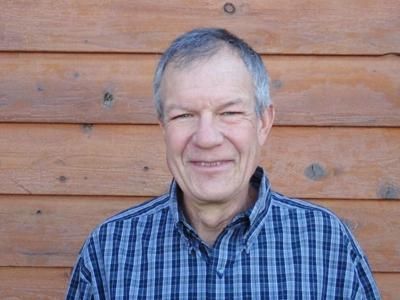Tony Svejcar, Rangeland Scientist, Retired

Tony Svejcar, a retired Rangeland Scientist, arrived in Harney County in 1990 and spent the next few decades working at the Eastern Oregon Agricultural Research Center as a Research Leader for the Agricultural Research Service. Tony has had many accomplishments during his career including early in 2021 being awarded the W.R. Chapline Research Award from the Society of Range Management, and in 2008 receiving the Outstanding Senior Scientist Award from the Agricultural Research Service.
Tony has always liked plants and had a natural curiosity; he found science was a good way to channel his interests and passions. In Harney County he found a great opportunity to use science to solve natural resource problems and advance conservation while enjoying the remoteness of Harney County. "In the beginning we [Eastern Oregon Agricultural Research Center] had very few resources for conducting research. In the early 1990s this was one of the most under-funded Agricultural Research Service units in the country. With time we gained support of customers and attracted funding. That allowed the research group to accomplish so much more. I enjoyed seeing our research being put to use."
Tony is retired now but he's definitely not idle. "I work on a few private ranches helping with grazing, water management, and general vegetation improvement. I’ve worked on forest management planning, ecological restoration, and education for a variety of clients. And of course I work with the Harney Basin Wetlands Collaborative (HBWC)."
Tony got involved with HBWC through his work with the Malheur National Wildlife Refuge and participation as part of the Ecological Working Group of the Malheur National Wildlife Refuge Comprehensive Conservation Plan collaborative effort. For Tony, it was a natural shift for his expertise to stretch to HBWC.
"A big advantage of HBWC is the communication among participants. That and the focus on two major issues—restoring Malheur Lake and maintaining the integrity of wet meadows. In the case of the lake, it was first important to understand the exact cause of the problem. It appears we are close to that because of the HBWC. I think we have also made strides on wet meadow ecology and understanding the effects of management practices."
While Tony's retirement can be filled with work he leaves time for fun and other interests. He and his wife Sonni "travel together, recreate together (skiing, hiking, fishing, and occasionally hunting), and even work together at times." Tony has two of his three kids in Harney County so there's time spent with them plus visits to his youngest daughter in eastern Washington. "And, of course, I cut juniper on land we own—not sure if that counts as fun or work. Usually it starts out as fun and becomes work later in the day." And, of course, Tony's love and interest in plants extends to gardening as well.

